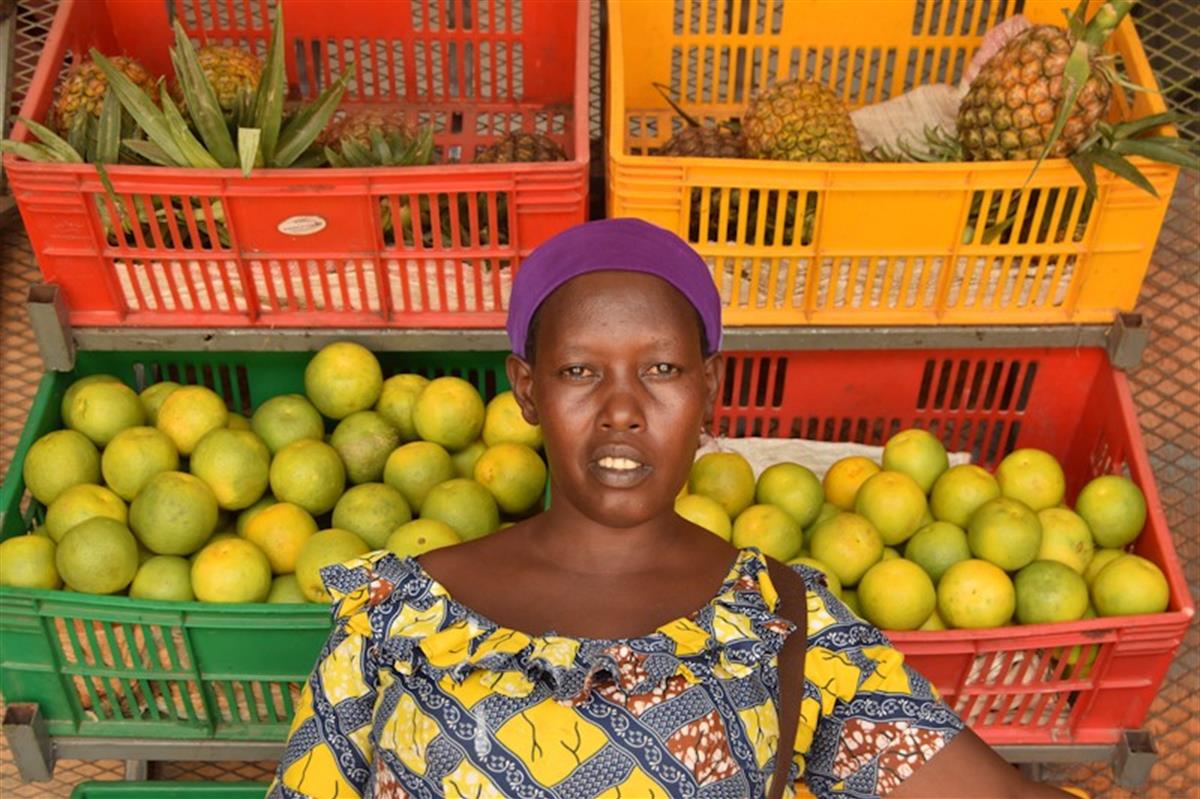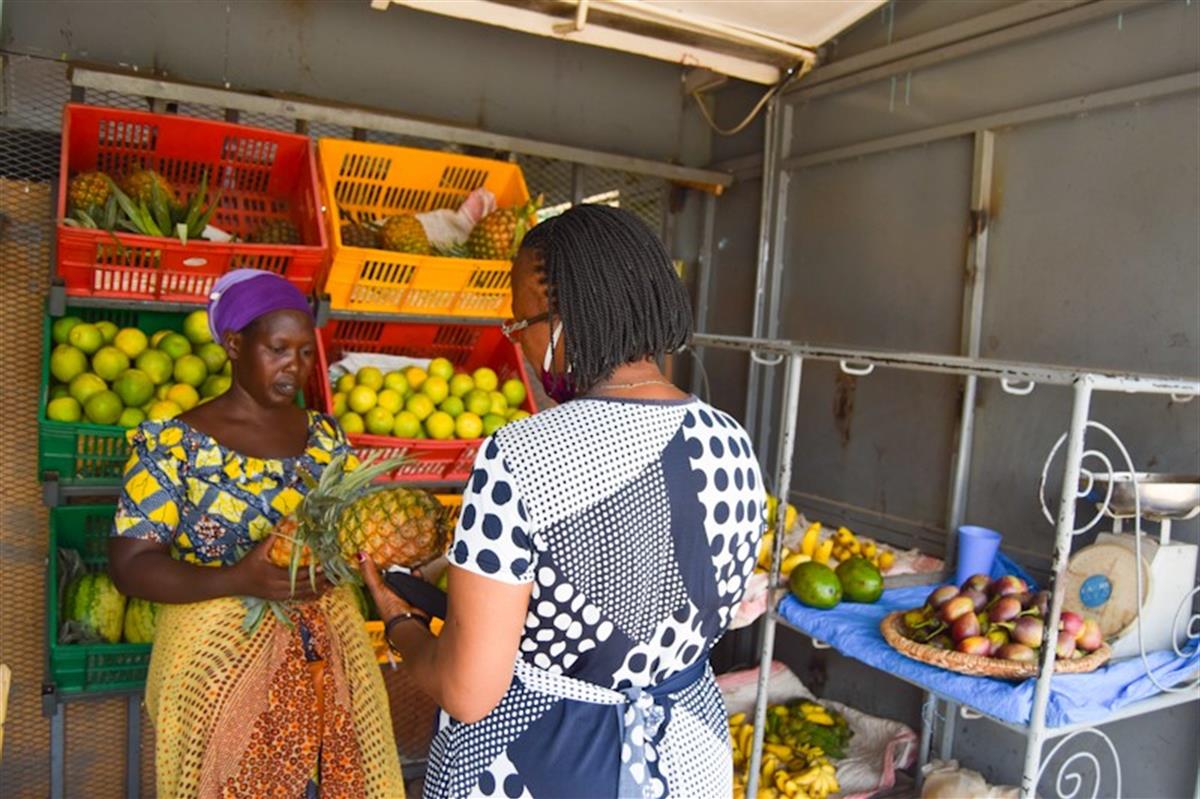Jeannette Nizigiyimana lives in the Cibitoke area, to the north from the city of Bujumbura, the capital city of Burundi. She lost her husband and has five children, one of which has been sponsored for the past ten years through AVSI distance support project. This was possible thanks to the MEO (Mothers, Children and Orphans) Center, set up by AVSI Burundi with the help of the Italian organization CBAU - Comunità Biellese Aiuti Umanitari (Biellese Community for Humanitarian Aid).
She was struggling to feed her children and pay her rent of 30,000 burundian francs (12.5 euros), when, in 2015, the distance support project introduced her to the "Community Savings and Internal Community Credit" (CECI) approach. At that time, she was a street vendor of avocados: "I had plans, but I lacked capital. Thanks to this project, I finally had access to financial resources," Jeannette explains. The initiative was introduced with the purpose of offering development opportunities to families with sponsored children.
Within the framework of the savings and access to credit approach, she joined an association called Dufashanye, that can be translated as "Let's help each other" in English. Over the course of three years, as a result of the distribution of the shares of the members, she received more and more funds, respectively 300,000 (125.5 euros), 410,000 (171 euros) and 500,000 burundian francs (209 euros).
As her income increased, Jeannette decided to stop the itinerant trade and rented a shop at a famous chain of supermarkets in the Ngagara district, in Bujumbura. She did so, in order to have access to more affluent customers. Thus, she diversified her fruit offer and added other produce.
The "community savings and internal community credit" approach
This practice is based on self-selecting groups of people. They can be made up of more or less than 25 members and form a common fund from which members can borrow. The loans are repaid with interest, thus increasing the funds. These saving and borrowing activities are undertaken in a cycle of predetermined duration (12 months maximum), at the end of which the funds are shared among the members, in proportion to their total savings.
Members are free to use the money they have collected as they want, including reinvesting it in another cycle. Also, "community savings and access to credit" have a secondary fund to help members in case of social problems. The main objective of this initiative is to offer simple savings, loan and insurance structures to communities where formal financial services are not available, or people who do not have access to them.


Four years after starting this business, Jeannette is a financially autonomous woman. She bought a plot of land, worth 2.5 million Burundian francs (1,053 euros) north of Bujumbura, in order to build an house for her family. Thanks to the business, she can now feed her children properly, more than just once a day as she could only do at the beginning, and she no longer has problems paying for the kids' schooling and medical care. Now that she has stability in the present, she can even think about the future and plans to open other sales points in other areas of Bujumbura. She has left dependence behind her and continues her journey towards economic empowerment.
Her customers are satisfied, too. Thanks to her business, they have access to fruit and vegetables without having to travel long distances. Moreover, she even sells on credit, giving her customers the products and allowing them to pay later, especially if they are buying food for someone who is sick, said a customer that we met on the spot.